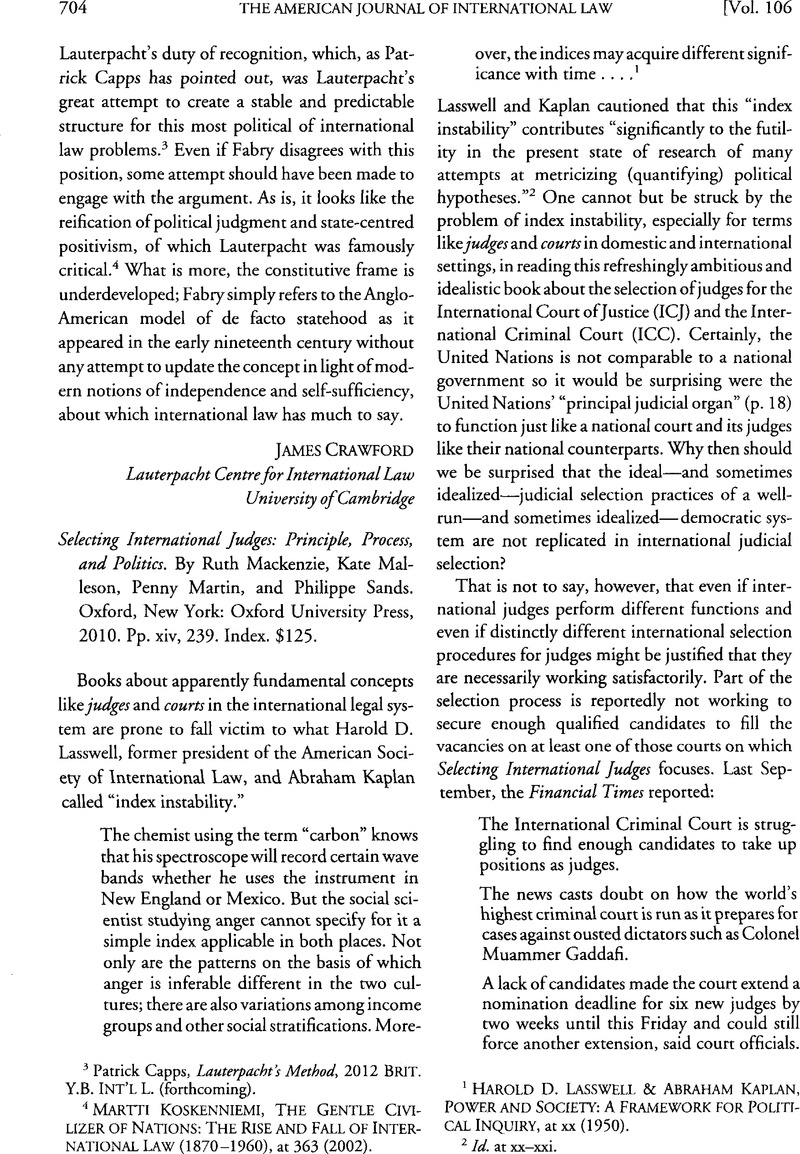No CrossRef data available.
Published online by Cambridge University Press: 20 January 2017

1 Harold D. Lasswell & Abraham Kaplan, Power and Society: A Framework for Political Inquiry, at xx (1950).
2 Id. at xx-xxi.
3 Binham, Caroline, The Hague Struggles to Find Judges, Fin. Times, Sept. 14, 2011, at http://www.ft.com/intl/cms/s/0/ecbbe978-dede-11eO-9130-00144feabdc0.html Google Scholar.
4 Id.
5 Manley O. Hudson, The Permanent Court of International Justice and the Question of American Participation 8-9 (1925).
6 Abraham, Henry J., Justices, Presidents, and Senators: A History of U.S. Supreme Court Appointments From Washington to Bush II, at 186 (5th ed. 2008)Google Scholar.
7 See, e.g., Zina O’leary, The Essential Guide to Doing Research 109-12 (2004) (discussing nonrandom sampling techniques and their limitations).
8 See J. Armstrong, Scott & Overton, Terry S., Estimating Nonresponse Bias in Mail Surveys, 14 J. Marketing Res. 396 (1977)CrossRefGoogle Scholar.
9 For example, the authors discuss the need to have a group of judges with backgrounds in civil law, common law, and Islamic law.